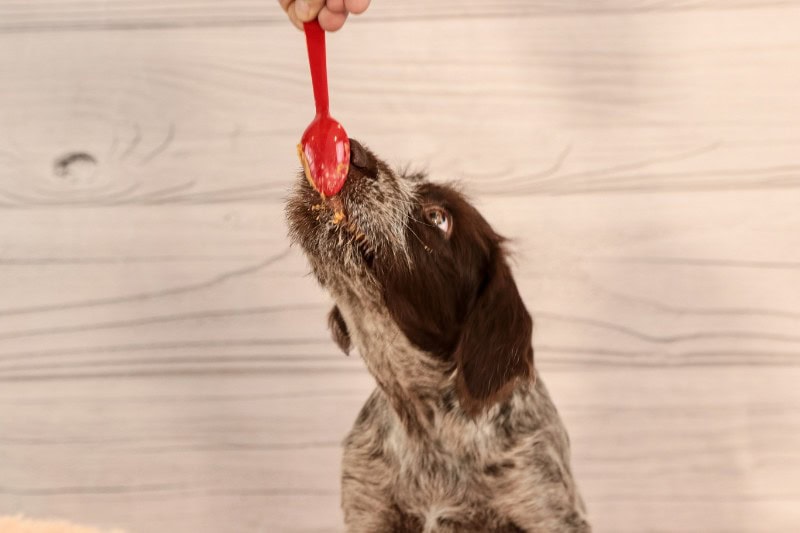What Is Xylitol and Can it Cause a Pet Poisoning?

The fact that pets love treats works to our advantage most of the time. It sure comes in handy when we want them to do something, or if they’ve earned a reward. Unfortunately, the same powerful drive for food can also land a pet in some pretty hot water.
Take Xylitol, for example. Found in a variety of sugar-free candy, medications, oral hygiene products, and food, this artificial sweetener can cause a severe pet poisoning.
Good For Us…
A sugar alcohol naturally occurring in various plants and trees, Xylitol can be purchased in granular form, like plain table sugar, to sweeten drinks, cereal, or baked goods. Amazingly, Xylitol doesn’t contribute to tooth decay like sugar does. In fact, it can reduce the development of cavities by 30-85%.
Xylitol is great for diabetics and those on low-carb or weight loss diets because it ranks very low on the glycemic index and doesn’t raise blood sugar values. In other words, none of the harmful side effects of sugar are present in Xylitol.
Bad for Them
So, while Xylitol certainly has its place in everyday life, it can be disastrous for animals. Specifically, dogs can be quickly poisoned by products containing Xylitol. But why?
It is estimated that Xylitol is about 100 times more toxic to dogs than chocolate. Even a very small amount found in a single piece of sugar-free gum can cause hypoglycemia, or low blood sugar, in dogs. Their bodies mistake Xylitol for glucose and the pancreas starts to produce insulin. This type of pet poisoning can also lead to liver failure. Left alone, Xylitol toxicity can cause death.
What About Cats?
Cats experience similar drops in blood sugar but due to their semi-picky tastes, they rarely go for candy or baked goods.
Positive Warning Signs
If you know or suspect that your pet ate something with Xylitol in it, please seek emergency veterinary care right away. You may notice uncharacteristic or sudden weakness, coordination loss, seizures, and collapse within 30 minutes or less.
With quick intervention, pets can bounce back from the hypoglycemic stage with the help of IV fluids, close monitoring, and hospitalization. They may require close observation for liver disease as they age.
Beware These Products
We mentioned the types of products that, if eaten, can lead to a serious pet poisoning. Please be on the lookout for these common culprits:
- Toothpaste and mouthwash
- Peanut butter (many brands use more than peanuts in their spreads; beware!)
- Gum, breath mints, and candy labeled “sugar-free”
- Jam or jelly
- Fruit drinks
- Jello or pudding
- Cereal
- Muffins, cookies, or cakes (never an option for pets to taste, as the high fat and sugar content in even regular baked goods can lead to pancreatitis)
- Vitamins and chewable supplements
Prevent a Pet Poisoning
Fortunately, with a little extra forethought at home and in public you can definitely prevent a pet poisoning.
- Always keep items containing Xylitol behind closed doors, off floors, and never on the countertops.
- Read food labels.
- Do not allow your pet to sample anything discarded at the park or anywhere on the ground.
- Act quickly when you suspect your pet ate Xylitol.
- Try to bring any remnants, like packaging if available, of the product with you to our hospital.
Our veterinarians are always here for your pet. If you have additional questions regarding Xylitol and preventing a pet poisoning, please let us know.
